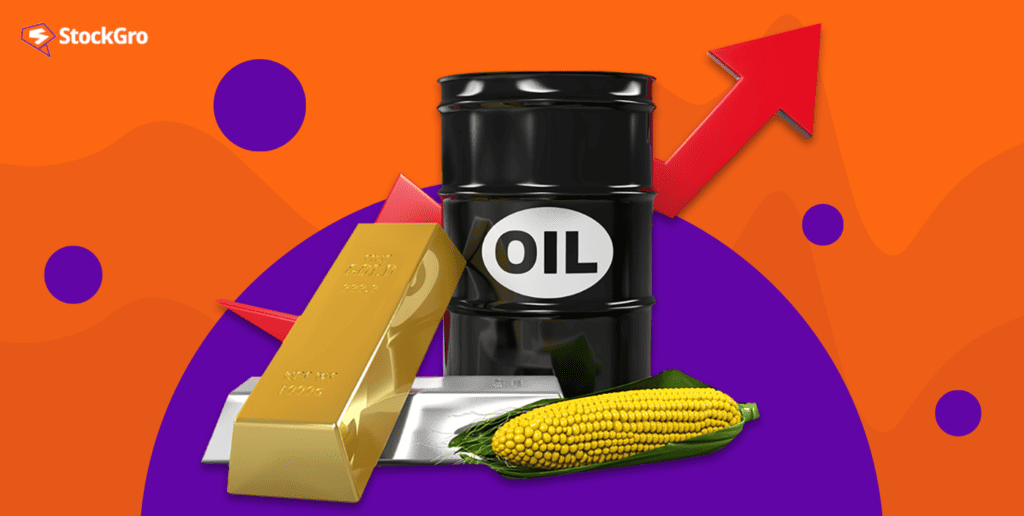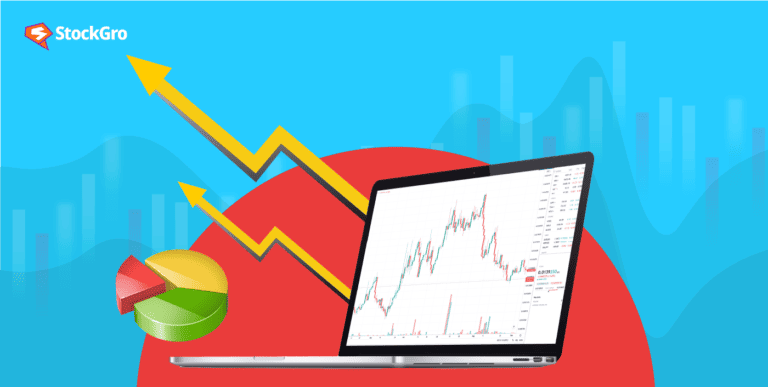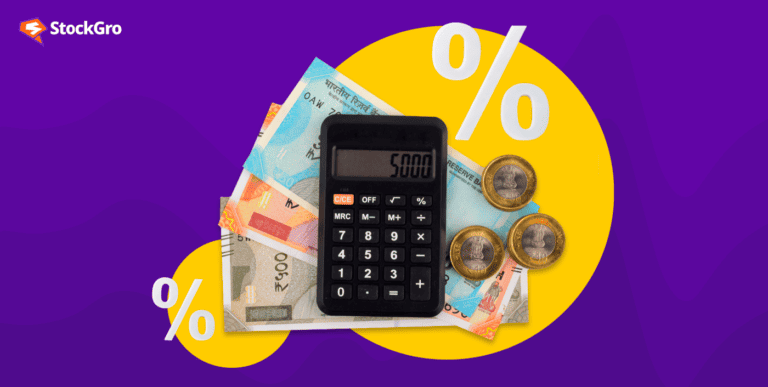
A market where commodities are traded (bought and sold) is known as a commodity market. To understand this better, one should also know what a commodity is. Commodities are goods or products that can be traded on any global market. While the quality of commodities may vary, they must have uniformity on some criteria across different producers.
A commodity market deals with various kinds of raw materials, right from precious metals like gold, diamond, silver and platinum to steel and other minerals. This market is also the platform for trading in physical goods such as wheat and coffee, to name a few. Read on to learn what a commodity market is, its functioning and the commodities traded in it.
What are the tradeable commodity stocks?
The term commodity is used to denote both hard and soft varieties of commodities. Hard commodities include natural resources like oil and metal and minerals like rubber and gold that are often mined or extracted.
Agricultural products such as coffee, rice, wheat or corn constitute soft commodities. While hard commodities often are the inputs for making other goods and providing services, soft commodities are used mainly for initial consumption.
The most widely traded and popular commodity in the world is crude oil, but a few other commodity examples widely traded in commodity markets include gold, silver, crude oil, natural gas, Brent oil, coffee, soybean, cotton, wheat, and corn.
Investors can trade in commodity stocks like crude oil, precious metals, energy, natural gas, energy, and spices in a commodity market. In India, trading in commodity futures for around 120 commodities is regulated by the Forward Markets Commission.
You may also like: What is trend analysis? [Explained]
What are the different types of commodities?
With around 50 major global commodity markets which trade in more than 100 commodities, traders and investors can easily build a diversified portfolio. There are four main categories of commodities that are traded in the commodity markets:
- Metals: Metals are widely traded commodities, including copper, aluminium, nickel, gold, silver, and platinum. They are used in construction and manufacturing.
- Agricultural goods: Agricultural and livestock products traded in the commodity markets include products such as sugar, cotton, spices, pulses, grains, oilseeds, eggs and feeder cattle, among others.
- Energy goods: Energy goods used in industries and households are also widely traded in commodity markets. These include natural gas, oil, and other energy commodities such as uranium, coal, ethanol, and electricity.
- Environmental goods: Renewable energy, carbon emission, and white certificates constitute environmental goods.
What commodities are traded in the Multi Commodity Exchange of India (MCX)?
- Bullion: Gold, Silver
- Agricultural commodities: Crude palm oil, mentha oil, castor seed, black pepper, cotton, cardamom, rubber, palmolein, etc.
- Energy commodities: Natural gas, Crude oil
- Base metal: Brass, Aluminium, Lead, Copper, Zinc, Nickel
What commodities are traded in the National Commodity and Derivatives Exchange (NCDEX)?
- Cereals and pulses: Maize kharif/south, maize rabi, wheat, barley, chana, moong, paddy (basmati), etc
- Soft commodities: Sugar
- Fibres: Kappa’s, cotton, guar gram, guar seed
- Spices: turmeric, pepper, jeera, coriander
- Oil and oil seeds: Soybean, castor seed, mustard seed, cottonseed oil cake, crude palm oil, refined soy oil, etc.
How is trading done in commodity markets?
There are almost 50 major commodity exchanges in the world which are well-established and well-regulated. Trading in stock market commodities allows investors to diversify their portfolios, as these investments in commodity stocks can help with inflation. The price of commodities goes up with rising inflation.
Like the other exchanges and markets, the commodities market is also the platform where interested parties can trade commodities at present or future. For a commodity to trade, it must meet the minimum standards set by the commodity exchanges.
Traders can transact in these commodities either on the spot market or through derivatives such as commodity futures and options. As commodity prices generally move in the opposite direction of stocks, market volatility gives investors a chance to indulge in commodity trading.
Also Read: What is personal finance, and why is it important?
What are the different commodity exchanges in India?
India has six major trading exchanges for commodities trading:
- National Multi Commodity Exchange India (NMCE)
- National Commodity and Derivative Exchange (NCDEX)
- Multi Commodity Exchange of India (MCX)
- Indian Commodity Exchange (ICEX)
- National Stock Exchange (NSE)
- Bombay Stock Exchange (BSE)
Which commodities are commonly traded in the world?
Some widely traded commodities globally include gold, crude oil, palm oil, corn, Brent, silver, wheat and coffee. Any price movement in a commodity in one part of the world also creates a ripple effect on the commodity prices in other economies.
For instance, let’s take the case of crude oil. Refined crude oil gives products like diesel and petrol. While there is an increased spotlight on increasing the use of renewable energy resources, there is still heavy dependence on crude oil. Crude oil prices have always been affected by disturbances in the Middle East and other countries.
Gold is another commodity after crude oil that has a special position in the commodity market as it provides an investment cushion against fiat currencies.
Whenever there is a significant crash in global equity markets, it is more often than not followed by a sudden boost in gold prices. Gold is considered an important hedge to counter a fall in equity markets.
What determines commodity prices?
The economic principles of supply and demand govern the commodity stock price. For example, a boom in the economy may spike the demand for oil and other energy commodities.
Supply and demand for commodities can also be affected by factors such as natural disasters, economic shocks, and investor appetite. If an investor expects a rise in inflation, he may purchase commodities as a hedge against inflation.
Also Read: How to trade in options and maximise your profit?
What are the different types of commodity traders?
- Buyers and producers
Buyers and producers use commodity futures contracts for hedging purposes. These contracts guarantee a set price for the commodity when the contract expires.
For instance, a wheat farmer can sell wheat futures contracts during planting season to protect against the risk of losing money in case wheat prices decline before harvest.
- Speculators
The second type of commodities trader is the speculator, who trades in the commodities markets to profit from volatile price movements. These traders do not intend to make or take delivery of the actual commodity at the expiry of the futures contract.
Final thoughts
Commodities have been an essential part of commerce for a long time, but commodities trading has become increasingly standardised in the past decades. Every type of movable good that can be bought and sold, except for actionable claims and money, can be considered a commodity.
A trader can have a diversified trading portfolio through some commodities since commodities do not generally trade in sync with equity and bond markets.

